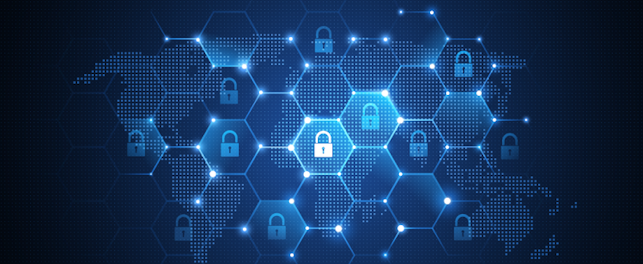The Responsible Jewellery Council (RJC) is a globally recognized organization dedicated to promoting responsible business practices throughout the jewelry and watch industry supply chain — from mining to retail. In this article, our lead auditor from the UAE, Ramzi Vazhayil shared his insights on the Jewelry Council Certification and Code of Practices in the Gulf Corporation Council (GCC) region, the certification process, and how SGS can help business in the region through certification and training.
Jewellery Market Size in the GCC Region
The jewelry market in the Middle East, particularly within the Gulf Cooperation Council (GCC), has witnessed significant growth, driven by increasing consumer demand and a strong cultural affinity for gold and luxury jewelry.
The GCC market, comprising Saudi Arabia, the UAE, Qatar, Kuwait, Bahrain, and Oman, is estimated to be worth over USD 30 billion and is expected to grow at a CAGR of around 6% in the coming years.
Dubai, known as the 'City of Gold,' serves as a key global hub for jewelry trade, with its gold souks and tax-free shopping drawing international buyers. Saudi Arabia, the largest jewelry market in the GCC, accounts for a substantial share of the region’s demand, with high disposable incomes and a preference for 22-karat gold and diamond jewelry. The UAE also plays a pivotal role in jewelry trade, with exports and re-exports strengthening its position in the market.
Several factors contribute to the sector's growth, including an expanding tourism industry, rising luxury spending, and government initiatives supporting local gold and jewelry production. Ethical sourcing and sustainability are becoming increasingly important, making RJC certification highly relevant for businesses aiming to enhance credibility and market competitiveness.
Understanding RJC Certification
RJC certification fosters trust within the fine jewelry industry by ensuring that businesses adhere to ethical, social, and environmental standards. To achieve certification, companies must undergo an independent audit conducted by RJC-accredited auditors, verifying their compliance with the RJC Code of Practices (COP). This certification applies to the supply chains of gold, silver, platinum group metals (PGMs), diamonds, and gemstones.
Why RJC Certification Matters
Obtaining RJC certification offers several advantages, including:
- Enhanced credibility
Demonstrates commitment to high ethical and sustainability standards. - Risk mitigation
Proactively addresses ethical concerns to protect brand reputation. - Operational improvement
Strengthens internal management and compliance frameworks. - Industry recognition
Aligns with global standards, such as Signet Responsible Sourcing Protocols (SRSP). - Sustainable practices
Supports responsible sourcing and business ethics within the jewelry supply chain.
RJC Code of Practices (COP)
The RJC Code of Practices (COP) is a mandatory standard that all commercial RJC members must comply with within two years of joining. This multi-faceted framework evaluates aspects such as supply chain integrity, ethical business conduct, labor rights, environmental impact, and management systems.
The COP is structured around six key objectives:
- Ensuring legal and regulatory compliance and promoting transparency in business practices.
- Implementing due diligence processes to protect human rights, foster community development, and prevent corruption.
- Upholding international labor standards to ensure fair working conditions.
- Protecting health, safety, and the environment while promoting resource efficiency.
- Preventing misleading marketing practices and ensuring product transparency.
- Encouraging responsible exploration and mining to minimize environmental and social impacts.
The RJC Certification Process
- Self-Assessment: The company conducts an internal review to assess its alignment with RJC standards using the self-assessment workbook, identifying areas for improvement.
- Certification Audit: An RJC-accredited auditor reviews the self-assessment, visits the company’s facilities, and evaluates compliance with the COP.
- Audit Report: The auditor compiles a report detailing findings, including any non-conformances, and submits it for review.
- Certification Decision: RJC assesses the report for completeness and determines whether certification is granted based on the auditor’s recommendations. A successful applicant receives certification valid for three years.
- Ongoing Compliance: Certified members undergo periodic surveillance audits to ensure continued adherence to standards.
- Re-Certification: Before certification expires, companies must undergo a re-certification audit to maintain their status.
How SGS Supports the RJC Certification Process?
With local presence across all GCC countries like UAE, Saudi Arabia, Bahrain, Qatar, Oman, and Kuwait, SGS helps businesses navigate their RJC certification journey by conducting accredited audits aligned with the RJC Code of Practices and Chain of Custody standards.
Our assessments integrate international frameworks such as the Universal Declaration of Human Rights, ILO principles, the UN Global Compact, and Sustainable Development Goals (SDGs).
For expert guidance on achieving RJC certification, contact our local experts today.
Frequently Asked Questions (FAQ)
About SGS
SGS is the world’s leading Testing, Inspection and Certification company. We operate a network of over 2,500 laboratories and business facilities across 115 countries, supported by a team of 99,500 dedicated professionals. With over 145 years of service excellence, we combine the precision and accuracy that define Swiss companies to help organizations achieve the highest standards of quality, compliance and sustainability.
Our brand promise – when you need to be sure – underscores our commitment to trust, integrity and reliability, enabling businesses to thrive with confidence. We proudly deliver our expert services through the SGS name and trusted specialized brands, including Brightsight, Bluesign, Maine Pointe and Nutrasource.
SGS is publicly traded on the SIX Swiss Exchange under the ticker symbol SGSN (ISIN CH1256740924, Reuters SGSN.S, Bloomberg SGSN:SW).
Al-Jbeiha, Yajouz Street, Caracas Building, Entrance No1, 3rd Floor, Office 311,
11193,
Amman, Jordan




